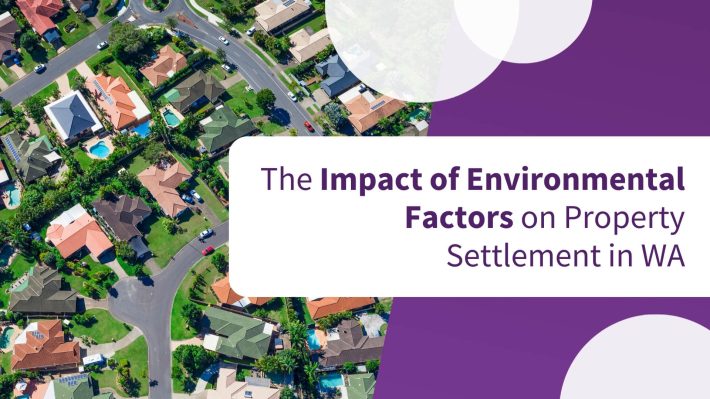Settlement On Land And Construction Contracts: What To Do If The Project Can’t Be Completed

It goes a little something like this…. You have embarked on your dream of buying land to build your own property on it. You have finalised the renders and the designs, which is very exciting, especially when the builders begin work. But what do you do when it doesn’t go according to plan? What if you can’t find a way to finish the project? It is a common story in property development. With all the moving parts and Mother Nature playing her role, sometimes the unthinkable happens, and you are left with a hard choice: sell up and hopefully try again somewhere else. Aside from the disappointment this may bring, there are ways the property conveyancing process can help to address the contract, titleship, responsibilities and land implications to minimise the impact. This is where KDD Conveyancing can help.
At KDD Conveyancing, our team is highly experienced in settlements involving incomplete projects, from buyers turned sellers looking to sell an incomplete building project to buyers looking to buy a below-market-price incomplete project. We know how to manage selling up or cutting losses on an unachievable building project, as well as what to look for and include in the settlement contract when buying a fixer-upper semi-complete building project.
We always encourage landowners looking to build a property to prepare for the potential reality that construction projects can hit a brick wall, whereby they cannot be completed. So what do you, as the seller or the buyer of an incomplete building project, need to know beforehand?
Property Conveyancing: Why Construction Projects Sometimes Don’t Go To Plan
When buying a property off-the-plan, there is always a risk that the developer or builder is unable to proceed with the development within the time specified in the contract.
For a residential property, this might be due to a zoning issue, obtaining final subdivision or council approval, significant construction delays, or unexpected costs pushing the build well beyond budget.
In these cases, the owner of the land and property may need to sell their partially built property “as is” to recoup their losses, or a buyer may see an opportunity to purchase a project below market value.
Understanding why a construction project couldn’t finish can help you understand your rights and how best to proceed and protect yourself from any other surprises the project may throw at you.
Buying or Selling an Incomplete Property
It is possible to buy or sell an incomplete home, but be prepared for a reduction in the sale price.
A conveyancer can help you to review the contract to ensure you are protected as the buyer or the seller against any adverse issues in the process of taking possession of, or offloading, a partially completed home. This includes ensuring relevant insurance and other clauses are in place that protect all parties concerned.
Property Conveyancing: The Seller’s Perspective
A project is considered incomplete when the contract is terminated before the building is finished.
This could be due to the developer not completing the works, a change of circumstances, cost blowouts, or even supply issues. If you are the seller of an off-the-plan project and find yourself in a position where you may be unable to see the project through to completion, we recommend seeking legal advice from a construction lawyer to guide you through the process.
You may also like to consult your conveyancer to review the land contract, as they may be able to point out any clauses regarding completion, termination, or extensions that could apply to your circumstances.
There may be a sunset clause that sets a deadline for completing the construction project; if that deadline is not met, the buyer can cancel the contract. As a seller, consult your conveyancer to see if any clauses may protect you, such as one that allows you to terminate if there is a significant rise in building material costs.
The parties could also agree to an extension if this is specified in the contract.
Property Conveyancing: The Buyer’s Perspective
For buyers, partially finished homes can be a great way to get a bargain and develop them to their liking. However, keep in mind the higher construction costs involved and that it can be hard to determine the risks you may be taking on.
Before considering buying a semi-completed project, you may like to request copies of the original plan from the seller for the intended design and ascertain why the building contract ended. Additionally, contact the council to confirm if the R-Codes are compliant and confirm the planning permissions are still viable as intended. Planning permissions in Western Australia generally remain attached to the land rather than the applicant, meaning they continue to apply after a property is sold, unless they have expired. Buyers should confirm that the approval is still valid and complies with any conditions, as new approvals may be required if the intended use or design changes.
At times it can be as simple as picking up where others left off, or it could be a case of demolishing and starting the foundations again.
Property Conveyancing: The Buyer-Turned-Seller’s Perspective
Sometimes, a buyer who began their project with every intention of completing the build finds themselves unable to continue due to builder insolvency, personal financial changes, or project delays.
In this case, the original buyer may become the seller of a partially completed property.
For this, you will need a conveyancer experienced in managing settlements for incomplete projects. KDD Conveyancing can help navigate these complex transactions, ensuring your sale covers all contractual and legal requirements.
How a Property Conveyancer Can Assist a Partially Completed Project
Engaging a conveyancer early on is important to ensure all stages of settlement run smoothly.
Aside from assisting with the final legal transfer of property for settlement, conveyancers also help identify risks early and ensure parties comply with their legal obligations. In addition, they can be a saviour in the unfortunate event that a project cannot be completed by reviewing contracts and helping parties communicate and renegotiate settlements.
Understanding Land And Construction Contracts
A land and construction contract, as WA Consumer Protection describes, is for off-the-plan sales, including the sale of vacant land, house-and-land packages, and the purchase of units to be built and strata-titled. In each case, a contract is signed before the development or subdivision is finalised.
They are legally binding agreements covering both the purchase of the land and the subsequent construction project on the land. For off-the-plan strata contracts, you may find the land and construction contract are combined in one. For house and land packages, the construction contract is usually separate and will outline project timelines, payment schedules, insurance requirements, and procedures for making variations and withdrawing from the agreement if certain conditions are not met.
In the case of vacant land purchases and off-the-plan purchases, the buyer pays the developer a deposit on signing the contract. However, ownership does not transfer to the buyer until the Certificate of Title is transferred to their name and the property conveyancing process is completed.
As WA Consumer Protection describes, the sale contract is more of a conditional promise by the seller to deliver a parcel of land, or land and a building, at some future time for an agreed price. The balance of the purchase price is due at settlement. Settlement can only occur when the Certificate of Title has been issued.
Steps To Take In Property Conveyancing For Incomplete Projects
Whether you are the buyer, the seller, or the buyer-turned-seller, consulting your conveyancer early is key.
- Review your contract for relevant clauses (completion, termination, or extension).
- Maintain contact with your builder or developer formally in writing.
- Seek legal advice from a construction lawyer before escalating disputes.
- Work with your conveyancer to determine if a settlement extension or termination clause applies.
Contact KDD Conveyancing Today To Learn More About Settlements For An Incomplete Building Project
KDD Conveyancing brings more than 25 years of experience to the table for handling such “buy land to build” projects in progress. With local knowledge of properties in Western Australia, we can save you time by providing local insights into the various factors you should consider when undertaking such a project.
Get in touch with us here to discuss your home build, how we can guide you through the process, and how we can help you mitigate and overcome potential challenges.



